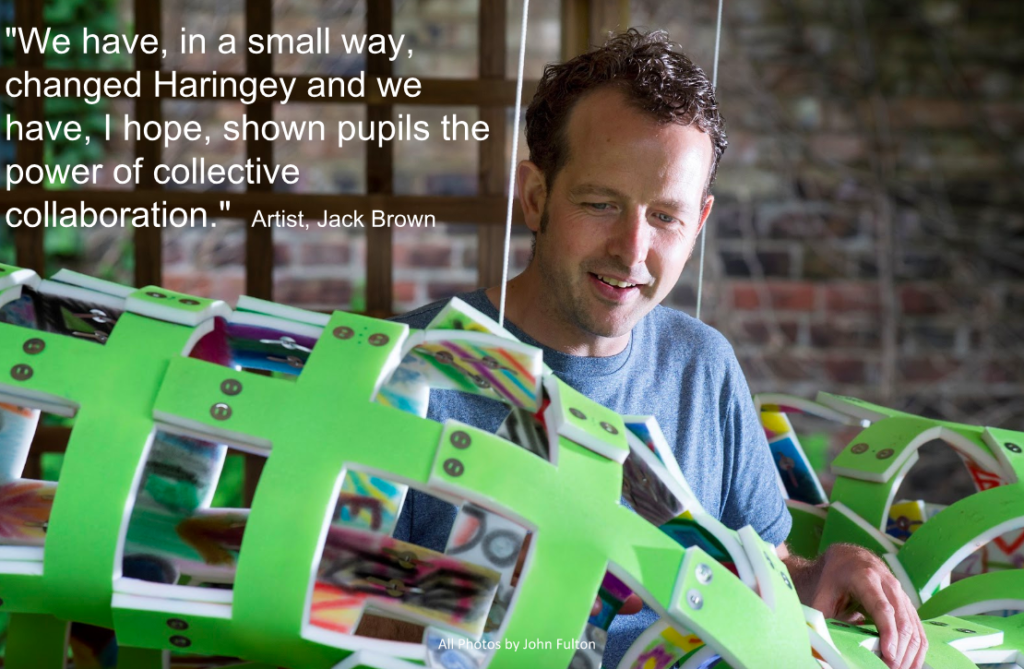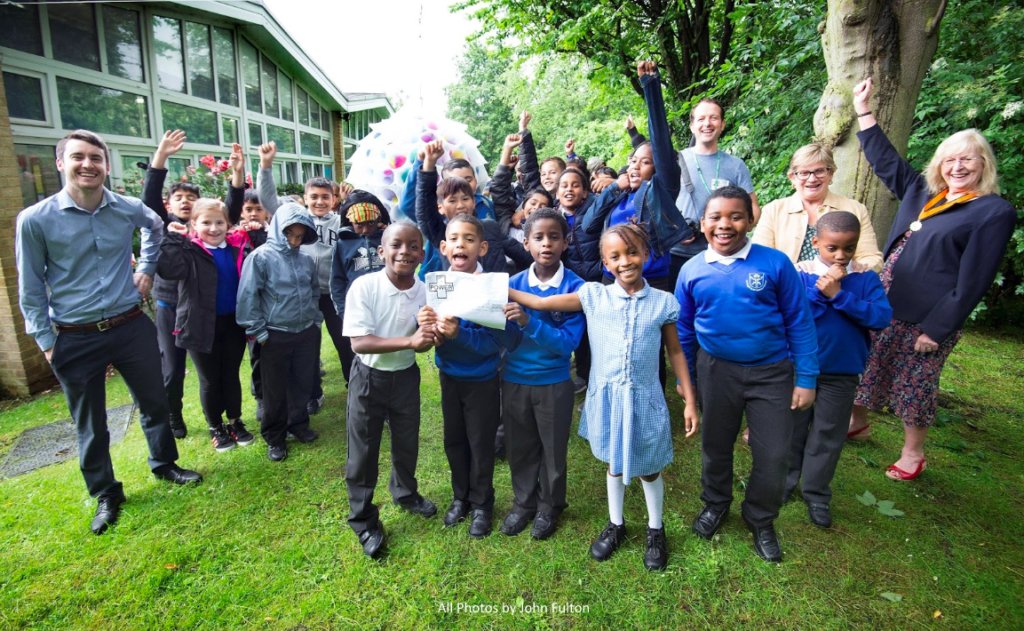Cultural democracy in practice – Units of Power
Units of Power
Units of Power was a 2016 project led by artist Jack Brown in partnership with Children and the Arts and Saatchi Gallery. It took place in 3 schools in Tottenham, London – Northumberland Park Community School, St Paul’s and All Hallows Primary School and Risley Avenue Primary School.
The visible outcome of the project was to create a series of outdoor, semi-permanent structures for each of the schools, but the process of getting there was what was transformative in its approach. Realising how little power children often have in their own lives, certainly at school, Jack was interested to empower them to lead the project at every level. Jack established a democratic framework, giving over artistic and organisational choices for the children to make at every stage, starting with an initial workshop that engaged them making in key decisions on process and style. He collected information on preferences from each of the children and coded their responses in order to make collective choices about a starting point for each school, that looked like this:
Northumberland Park Community School
-
- We will make an artwork made of curves and lines
-
- We will work in small teams
-
- we will add pattern and texture to our artwork
- People will feel calm or excited when they see our artwork
Risley Avenue Primary School
-
- We will make an artwork that is made of repeated shapes.
-
- Our artwork will have lots of different colours
-
- we will work in small teams
- we want people to feel excited when they see our artwork.
St Paul’s and All Hallow’s Primary School
-
- We will make an artwork that is made of repeated shapes.
-
- We will work on our our parts of a bigger artwork that will fit together.
- we want people to feel happy when they see our artwork.
To ensure that the sculptures would all be weather-proof and robust artistically and practically, Jack used his expertise as an artist to shape some parameters, but left the execution and artistic method in the hands of the participants. The children and young people felt total ownership of the project and their pride in the final outcome was very visible. As well as co-creating the sculptures, they also designed tours to explain the work, and took part in the organisation of the project, inviting other schools to come and visit.
Jack cites a number of things as being crucial to the democratic development of the project. The relationships with the schools were all in place, he’d worked there before so there was trust on both sides, allowing them to take longer and take more risks. There was also support and encouragement from the commissioner, who were happy to leave outcomes more fluid and allow for experimentation. Jack’s work as an artist centres around protest and public space and he found that although his ideas obviously influenced the project, he was also influenced in the rest of his work by this and other education work he’s been doing.
More recently, he’s worked with the support of Salford University and Salford Museum and Gallery to develop a programme called Encounters, which encourages young people to explore and get hands on experience to investigate pursuing a career in the arts. He talks about the importance of empowering young people to develop and use their influence, nudging and pushing within organisations and institutions in the same way that he does as an artist. He is currently part of Paradise Works, a collectively run initiative offering studio space and support to artists, democratising existing space and using collective power to influence developers and local stakeholders.
To find out more: https://unitsofpower.wordpress.com/


